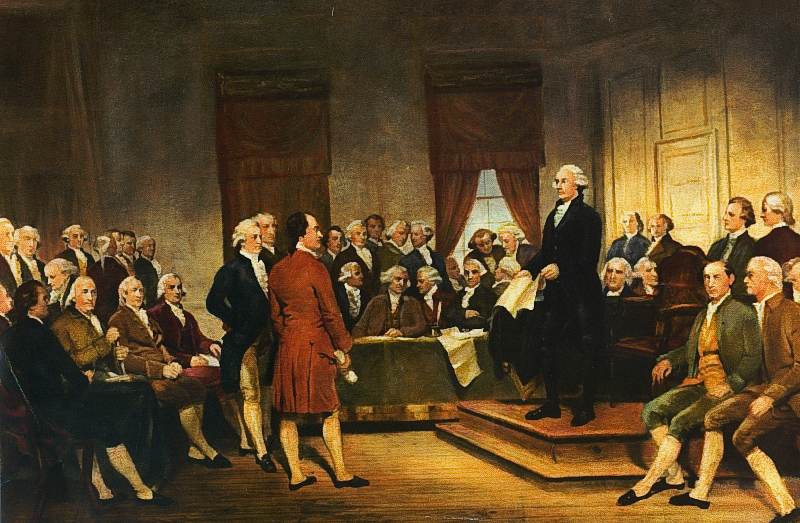Ibram X. Kendi’s Religious War

The prophet of antiracism preaches a perverse (and predictable) gospel.
Last month, the bestselling “antiracist” author and National Book Award winner Ibram X. Kendi published an incendiary article in the Atlantic entitled “A Battle Between the Two Souls of America.” The article criticizes those “who religiously believe the myth of the pure American soul,” although we are never told who these people might be. (Does anyone believe that the United States is purely good or purely evil?) Kendi argues that America has no single soul—and certainly not one that can be saved or restored, as both Martin Luther King and Donald Trump hoped to do.
But Kendi is no demythologizer. Manichean oppositions—great struggles of good and evil, light and darkness, purity and pollution—are his stock-in-trade. Kendi proposes a new religious myth: America is in fact a “battlefield” between “two souls, warring with each other.” These are the “soul of justice” and the “soul of injustice.” The “battle of 2020,” he writes, is “the historic battle for America.” It is a battle between forces that are “never turning back,” a final conflict of divine and demonic opponents in which the very “being” of our nation is at stake.
Guess which side is which. Kendi repeats the slander that formed the centerpiece of Biden’s acceptance speech at the Democratic National Convention: Trump “posed a moral equivalence between neo-Nazis and the people rallying against them.” The reference here is to August 15, 2017, when Trump responded to violence that broke out in Charlottesville, Virginia over the prospective removal of a confederate statue.
It has been claimed again and again that Trump called neo-Nazis “very fine people.” In fact, what Trump stated at that time was: “I’m not talking about the neo-Nazis and white nationalists because they should be condemned totally.” The “very fine people” he was speaking of had concerns about the removal of Confederate monuments—concerns that classical liberals like John Stuart Mill would have said deserved a fair hearing. But the matter is no longer subject to debate now that even statues of Abraham Lincoln have been torn down by “antiracist” protestors.
Kendi speaks of pious worshippers (his article begins with a kneeling Joe Biden) and “global” martyrs (George Floyd), but God plays no role in his apocalyptic vision. For it is not God but human beings who “breathe souls into nations.” Trump and his army of deplorables breathe “genocide, enslavement, inequality, voter suppression, bigotry, cheating, lies, individualism, exploitation, denial, and indifference to it all,” while the righteous devotees of Biden and Harris breathe “life, freedom, equality, democracy, human rights, fairness, science, community, opportunity, and empathy for all.”
Kendi’s demonization of half the electorate is as irresponsible as it is popular (consider recent calls for enemies’ lists and Truth Commissions to identify, judge, and punish Trump’s supporters). Kendi’s “two souls” are feverish mythical projections: the groups to whom these souls are imputed comprise actually existing human beings. If the “soul of injustice” is breathed into life by people, then it cannot be defeated without defeating those people. And if those people are as tyrannical and bigoted as Kendi says they are, they can be defeated only by being destroyed.
“There’s no uniting the souls of America,” Kendi writes. “There is only fighting off the other soul of America.” Plenty of people are inclined to take this talk of warring, battling, and fighting literally. How could Kendi’s words fail to fuel the ideological passions of extremists within groups like Antifa and BLM, who have for many months been rioting, burning, looting, and spilling blood on the streets of American cities, all in the name of “justice” and “antiracism”?
For all its grand rhetoric, Kendi’s secularized version of religious apocalypticism is painfully familiar to students of ideological tyranny. Lenin spoke of kulaks, landowners, the bourgeoisie, and other internal enemies as “fleas” and “parasites” whose extermination was necessary to establish the earthly Eden of the worker’s paradise. The theologians of the Third Reich fashioned a new myth of Jesus as a forerunner of Nazism who strove heroically to destroy Judaism but failed; Hitler’s war against the Jews was thus said to be the fulfillment of Jesus’ original Christianity.
These examples could be multiplied, but the point is clear. The grouping of human beings according to moral and spiritual categories of good and evil, pure and polluted, saved and damned, is the first step down a path that has historically culminated in not simply riots but pogroms, purges, and judicial murders—not just deportations but enslavements and genocides. Such is the bitter harvest of ideological Manicheanism.
While Kendi’s apocalyptic vision echoes Christian millenarianism, his understanding of human beings is profoundly un-Christian—perhaps anti-Christian. For Kendi, no sin attaches to those who breathe the soul of justice, and no redemption is possible for those who breathe the soul of injustice. Missing from such absolute judgments is any hint of humility or charity.
Aleksandr Solzhenitsyn famously wrote in The Gulag Archipelago that the line between good and evil “passes not through states, nor between classes, nor between political parties either—but right through every human heart—and through all human hearts.” While Solzhenitsyn’s lesson is lost on Kendi, let it not be lost on us. For there is no hope for the people of the United States that does not begin by acknowledging its profound truth.
The American Mind presents a range of perspectives. Views are writers’ own and do not necessarily represent those of The Claremont Institute.
The American Mind is a publication of the Claremont Institute, a non-profit 501(c)(3) organization, dedicated to restoring the principles of the American Founding to their rightful, preeminent authority in our national life. Interested in supporting our work? Gifts to the Claremont Institute are tax-deductible.
Root, root, root for the electors. If they don't win it's a shame.
Part I: Unfettered reason cannot conserve anything.






